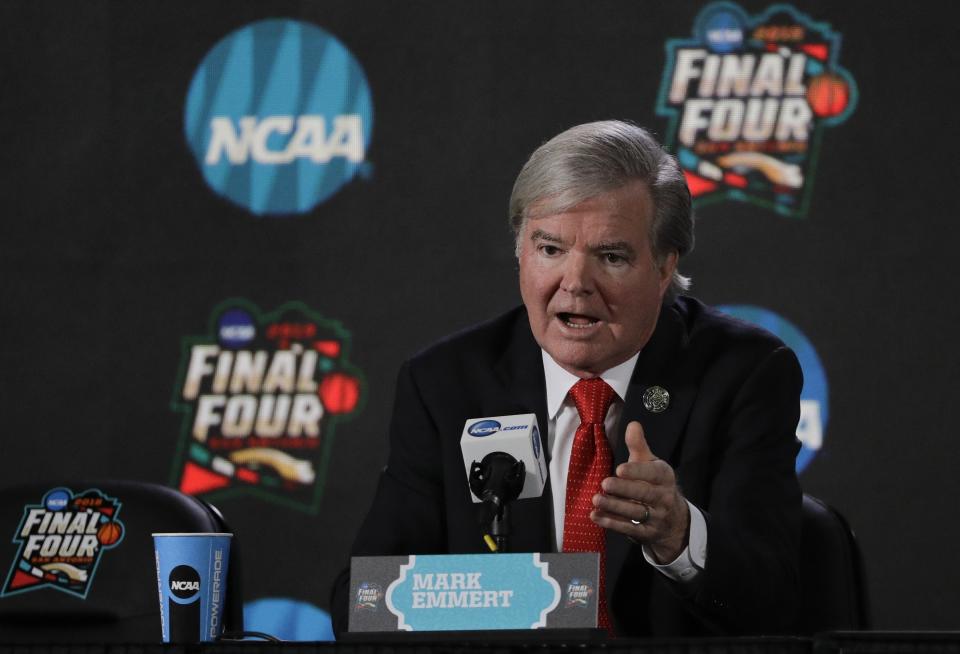NCAA president: Paying football and basketball players would eliminate other sports

With the Final Four upon us, the NCAA wants you to know that it’s still not a good idea to pay college players.
The NCAA promoted a video Saturday with NCAA president Mark Emmert explaining how paying football and men’s basketball players — the two sports that drive revenues for the NCAA and its member athletic departments — would lead to the elimination of some sports.
And, somewhat bizarrely, another sticking point seems to be that if you pay male players then you have to pay female players too. Take a look at Emmert’s comments:
What would happen if NCAA schools started paying men’s basketball and football players? Other sports would be eliminated. pic.twitter.com/c0Y1s7NG1x
— NCAA (@NCAA) March 31, 2018
“Well I think you’ve got to remember that this is in the context of higher education. These are educational universities and colleges that are conducting these games and you have to abide by the educational laws of the United States. You’ve got to provide women with the same opportunities and support that men receive. If you were going to pay salaries to male athletes, you’d have to do the same thing for female athletes and you’d have to come up with some explanation to the federal government as to why you would possibly not do it for one group versus another and I think that’s completely untenable.”
“Another issue is that if you were going to move into a model where you were just paying football and basketball aheletes — at least that’s the argument that always comes forward — the way athletic departments are going to do that is they’re going to eliminate other sports. There’s really no other way for them to do it. Yeah, if you just looked at the revenue from football you might be able to figure out how to pay football players but you would eliminate all the other sports that are out there in order to do that and take away opportunities for men and women.”
It’s important to also note that the question to Emmert was phrased oddly. The only way gender really applies in the context of paying players is because two men’s sports are the moneymakers for universities. If college athletic departments prospered on the backs of its women’s basketball and soccer programs the core argument to compensate players more fairly doesn’t change.
Without getting into the particulars of how schools would pay players and how much they would pay them, it does seem reasonable to believe that low-revenue sports would get cut to help athletic departments balance budgets in a scenario that Emmert outlines above. But it’s a talking point against an argument that isn’t very widespread.
The NCAA and most college sports fans know the most sensical option to compensate athletes is to let them receive endorsement money and other compensation for their likeness. How can you argue against a player being unable to capitalize off his or herself’s image? It’s a relatively easy rule the NCAA could change without impacting the budgets of its athletic departments.
Yet here we are, writing about the latest strawman argument the NCAA is making against treating players fairly. If the NCAA’s member schools were as committed to true athlete reforms as they are to finding ways to defend the current (and outdated) model, things would look a lot different.
– – – – – – –
Nick Bromberg is a writer for Yahoo Sports.
Follow @NickBromberg on Twitter
More from Yahoo Sports:
• Reporter fractures eye socket after being struck with foul ball
• Giants’ Panik makes baseball history vs. Dodgers
• Notre Dame’s stunner vs. UConn may be best game ever
• Yankees’ Judge ties mark as MLB’s tallest center fielder



